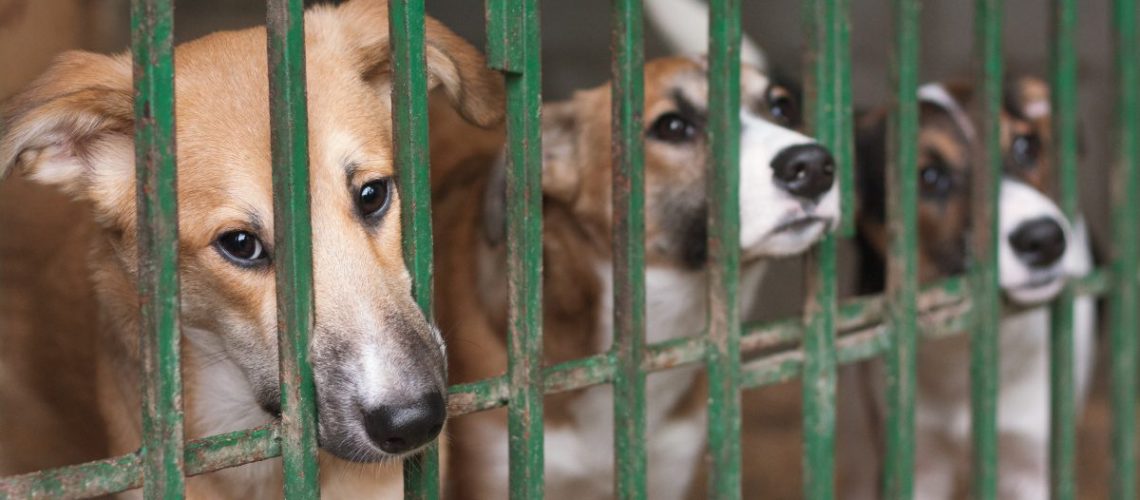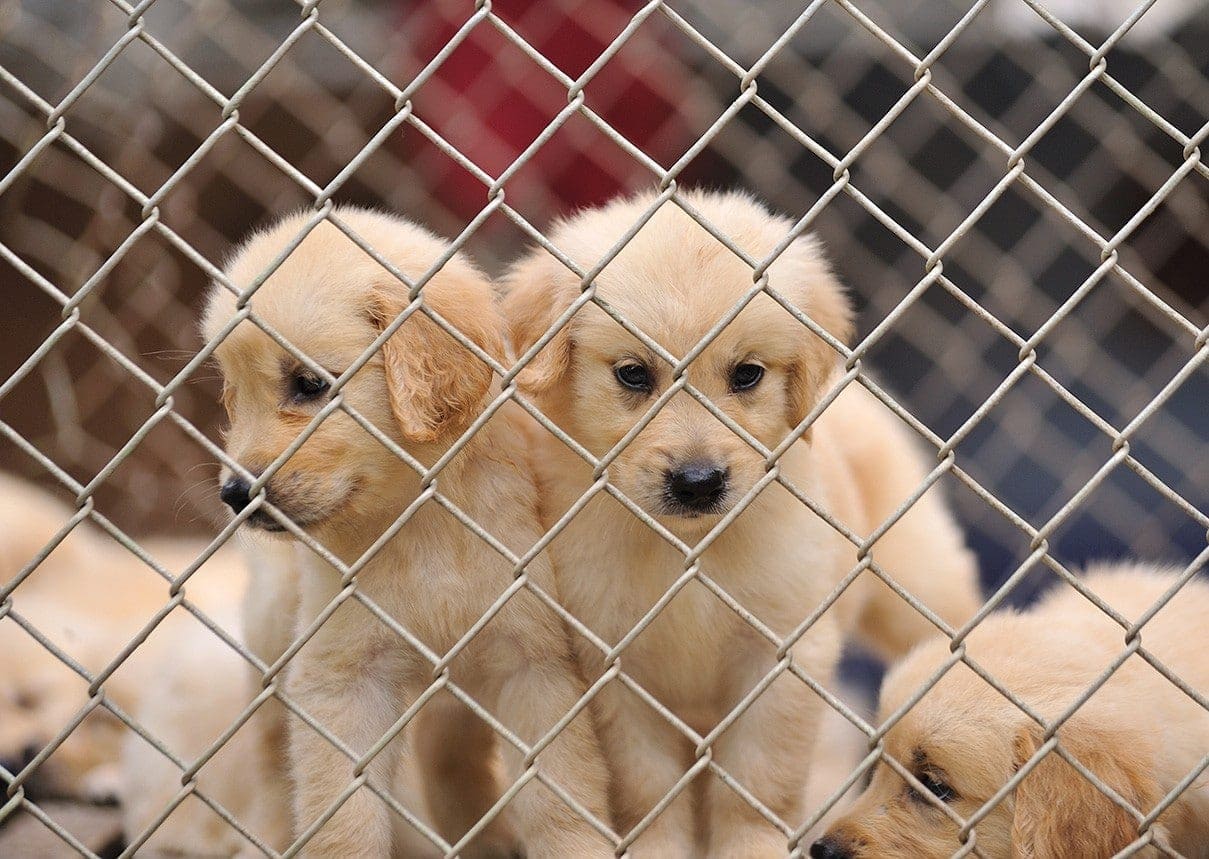In this guide, we will explore effective strategies to steer clear of both bad dog breeders and backyard breeders. Discover essential tips and insights to ensure you find a reputable breeder and provide a loving home for your furry friend.
Key Takeaways:
- Research and educate yourself about responsible dog breeding practices to identify the warning signs of bad breeders.
- Avoid purchasing dogs from pet stores or online platforms, as they often source their puppies from puppy mills or backyard breeders.
- Visit the breeder's facility in person to assess the living conditions and health of the dogs, ensuring they are well-cared for and raised in a clean environment.
- Ask for health clearances and documentation of genetic testing to ensure that the breeder is prioritizing the health and well-being of their dogs.
- Consider adopting a dog from a reputable rescue organization or shelter instead of supporting unethical breeding practices.
What is a dog breeder and why is it important to choose a good one?
A dog breeder is someone who selectively breeds dogs with the goal of producing puppies that meet specific standards in terms of health, temperament, and appearance. Good breeders are dedicated to preserving and improving the breed they work with, ensuring that each puppy has the best chance at a healthy and happy life.
It is important to choose a good dog breeder because they play a crucial role in the overall well-being of the puppies they produce. A reputable breeder will prioritize the health and welfare of their dogs above all else. They will carefully select breeding pairs based on genetic testing, conduct regular health checks on their dogs, provide proper socialization for the puppies, and offer ongoing support and guidance to new owners.
Why choose a good dog breeder?
- Good breeders prioritize the health and well-being of their dogs
- Puppies from reputable breeders are more likely to be healthy
- Reputable breeders provide ongoing support and guidance to new owners
- Responsible breeders help maintain breed standards
- Purchasing from a good breeder reduces the risk of supporting puppy mills or unethical practices
The impact of choosing a bad dog breeder
If you choose a bad dog breeder, you run the risk of getting a puppy that may have genetic health issues, poor temperament, or inadequate socialization. Bad breeders often prioritize profit over the welfare of their dogs and may engage in unethical practices such as overbreeding or keeping dogs in substandard conditions.
In addition to potential health problems, puppies from bad breeders may also lack proper socialization, which can lead to behavioral issues later in life. By supporting bad breeders, you are inadvertently contributing to the perpetuation of unethical breeding practices and the suffering of dogs.
Identifying bad dog breeders: signs to watch out for
1. Lack of transparency
A reputable dog breeder should be open and transparent about their breeding practices. If a breeder is unwilling to provide information about the health history, genetic testing, or living conditions of their dogs, it could be a red flag. Responsible breeders are proud of their dogs and will willingly share this information with potential buyers.
2. Overbreeding
Overbreeding is a common problem among bad dog breeders. They prioritize quantity over quality, often keeping their dogs in cramped and unsanitary conditions to maximize profits. Look out for breeders who always have puppies available or advertise multiple litters at once. This indicates that they may not be giving each litter the attention and care they deserve.
3. Poor socialization
A reputable breeder understands the importance of early socialization for puppies. They will expose their puppies to different environments, people, and other animals to ensure they grow up well-adjusted and confident. Bad breeders may neglect this crucial aspect, resulting in poorly socialized dogs that may develop behavioral issues later on.
Avoiding bad breeders: reasons to not buy dogs from them
Purchasing a dog from a bad breeder can have serious consequences for both the buyer and the dog itself:
1. Health problems
- Dogs bred by irresponsible breeders are more likely to suffer from genetic disorders and hereditary diseases due to poor breeding practices.
- Lack of proper health screenings increases the risk of bringing home a puppy with undetected health issues.
- The financial burden of treating these health problems can be significant.
2. Supporting unethical practices
Buying from a bad breeder perpetuates their unethical practices, such as overbreeding, keeping dogs in substandard conditions, and prioritizing profit over the well-being of the animals.
3. Contributing to pet overpopulation
By purchasing from a bad breeder, you are indirectly supporting the demand for puppies bred irresponsibly. This contributes to pet overpopulation and increases the number of dogs in shelters or at risk of abandonment.
Signs that a dog breeder may not be reputable
When searching for a reputable dog breeder, watch out for these warning signs:
1. Lack of knowledge or interest in breed standards
A responsible breeder should have a deep understanding of the breed they specialize in and strive to produce puppies that adhere to breed standards. If a breeder shows little knowledge or interest in breed standards, it suggests they may not prioritize breeding healthy and well-structured dogs.
2. No screening process for potential buyers
A reputable breeder will want to ensure their puppies go to suitable homes. They will ask potential buyers questions about their lifestyle, experience with dogs, and provide guidance on caring for the specific breed. If a breeder does not inquire about your suitability as an owner, it raises concerns about their commitment to responsible breeding.
3. Lack of references or testimonials
A trustworthy breeder should be able to provide references from previous puppy buyers or positive testimonials from satisfied customers. If they cannot provide any evidence of happy customers or refuse to share contact information for references, it may indicate a lack of credibility.
Visiting the breeding facility: how it helps determine responsible breeders
Visiting a breeder's facility is an essential step in determining their credibility and the conditions in which their dogs are raised. During your visit, pay attention to the following:
1. Cleanliness and living conditions
The breeding facility should be clean, well-maintained, and provide adequate space for the dogs. Look for signs of cleanliness, such as absence of strong odors or visible waste. Dogs should have access to clean water, comfortable bedding, and appropriate shelter.
2. Interaction with dogs
Observe how the breeder interacts with their dogs. Responsible breeders will have a close bond with their animals and show genuine care and affection towards them. They should be knowledgeable about each dog's temperament, health history, and individual needs.
3. Health records and documentation
A reputable breeder will keep detailed health records for each dog they breed. Ask to see vaccination records, genetic test results, and any other relevant documentation that demonstrates their commitment to producing healthy puppies.
Questions to ask a dog breeder before getting a puppy
When considering purchasing a puppy from a breeder, it is important to ask them specific questions to ensure they are reputable:
1. Can I meet the puppy's parents?
An ethical breeder will allow you to meet both the mother and father of the litter. This provides insight into their temperament, physical traits, and overall health.
2. What health tests have been conducted on the parents?
A responsible breeder will conduct various health tests on their breeding dogs to minimize the risk of passing on genetic diseases or disorders to the puppies. Ask about the specific tests performed and request to see the results.
3. How do you socialize your puppies?
Socialization is crucial for a puppy's development. A reputable breeder will have a plan in place to expose their puppies to different stimuli, such as people, other animals, and various environments. Inquire about their socialization practices.
The importance of seeing the puppy's parents when buying from a breeder
Seeing the puppy's parents is essential for several reasons:
1. Assessing temperament
By observing the behavior and temperament of both parents, you can get an idea of what traits the puppy may inherit. This helps ensure compatibility with your lifestyle and preferences.
2. Evaluating health and conformation
Examining the physical attributes of the parents can give you an indication of potential health issues or structural concerns that may be passed on to their offspring.
3. Building trust with the breeder
A reputable breeder will willingly introduce you to the puppy's parents as it demonstrates transparency and confidence in their breeding program. It also allows you to establish a relationship with the breeder based on trust and open communication.
Health tests responsible breeders should conduct on their dogs before breeding
A responsible breeder will prioritize the health of their breeding dogs by conducting various tests before breeding them:
1. Genetic testing
- DNA tests can identify genetic mutations or markers associated with hereditary diseases specific to certain breeds.
- This helps breeders make informed decisions about which dogs are suitable for breeding and reduces the risk of passing on genetic disorders to the puppies.
2. Hip and elbow evaluations
- X-rays can assess the hip and elbow joints for signs of dysplasia, a common orthopedic condition in dogs.
- Breeders should aim to breed dogs with healthy joint structures to minimize the risk of their offspring developing debilitating conditions.
3. Eye examinations
- Certified veterinary ophthalmologists can perform eye exams to detect inherited eye diseases, such as cataracts or progressive retinal atrophy.
- Breeders should ensure their dogs have clear eye test results before breeding them to avoid passing on these conditions.
Considering adoption: an alternative to purchasing from breeders?
Adopting a dog from a shelter or rescue organization is a compassionate and responsible choice. Here are some reasons why adoption is a great alternative:
1. Saving a life
By adopting, you provide a loving home for a dog in need and help reduce pet overpopulation. Many shelter dogs are euthanized due to overcrowding, so adopting saves lives.
2. Wide variety of breeds and mixes
Contrary to popular belief, shelters have a diverse range of dog breeds and mixes available for adoption. You can often find specific breeds or breed mixes if that is your preference.
3. Pre-screened health and behavior information
Shelters typically conduct health checks and behavioral assessments on their dogs before adoption. This information helps match you with a dog that fits your lifestyle and expectations.
4. Lower cost
The adoption fee for a shelter dog is usually significantly lower than the price of purchasing a puppy from a breeder. This can help save you money while still providing a loving home for a deserving dog.
In ConclusionTo avoid bad dog breeders and backyard breeders, it is crucial to conduct thorough research, ask the right questions, and visit the breeder in person. Remember to prioritize the well-being of the dogs over any other factors. By supporting responsible breeders or adopting from shelters, you can contribute to improving the overall welfare of dogs and discourage unethical breeding practices. |
How do you know if a dog breeder is bad?
The ASPCA emphasizes that a responsible breeder should be able to provide complete and trustworthy health and vaccination records for their puppies. If a breeder cannot provide vet records for your puppy, it is safe to assume that there are no records available. This could potentially indicate a physical issue with the puppy.
Why you shouldn t buy from backyard breeders?
Due to the prioritization of profit over animal welfare by puppy mills and backyard breeders, the animals they produce often do not receive adequate veterinary care. While these animals may appear healthy initially, they can later develop problems such as congenital defects in their eyes and hips, as well as issues with parasites or even contract the highly contagious and potentially deadly Parvovirus.
What is a red flag when looking at dog breeders?
If the breeder seems suspicious or hesitant to provide proof or asks the potential dog owner to cover the cost of testing, that should be seen as a warning sign. This could indicate that the breeder's dogs may have undisclosed health issues, and while they still deserve love, it is important for their future owners to be aware of what they are getting into.
What are the red flags for selling puppies?
Tim recommends inquiring about the breeder's past and expertise. Signs to be cautious about include breeders with numerous litters, easily accessible breeds, lack of knowledge about dog breeding, or being pressured to make a purchase.
What should you not say to a breeder?
What are the things you should avoid saying? Similarly, there are a few things to avoid when contacting a breeder: demanding an immediate or specific date for getting a puppy (as it is not a precise science), specifying the desired color or markings (e.g., demanding a black one).
Why do breeders ask for a deposit?
Implementing a deposit requirement ensures accountability and maintains a structured waitlist. This prevents one family, let's say Family A, from reserving a spot ahead of another family, such as Family B, and choosing a puppy that Family B had their heart set on, only to cancel their reservation at the last moment.

















